
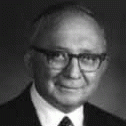 The Division of Rheumatology was organized in the 1950s by Howard L. Holley, MD. He was born in the Black Belt of Alabama and came to UAB in 1945 as an intern in the first group of house staff who inaugurated the new four-year medical school. He joined the faculty in 1947 and was asked to establish rheumatology as a distinct clinical division within the Department of Medicine. It was not unusual at that time for the chiefs of rheumatology to have come from general medical or other specialty training, there being few designated rheumatology training programs. Thus, the program established by Dr. Holley was among a handful in the US and established himself as one of the early pioneers of UAB. Dr. Holley was doubtless influenced to establish a rheumatology division by the perceived need within the Department of Medicine and by his desire to better understand rheumatoid arthritis, which would eventually cripple him and contribute to his death in 1987. Through Dr. Holley's warm and empathetic personality and management expertise, by the early 1960s, the Division had grown to include a clinical training program with two fulltime clinician-educators and three PhD faculty. One of those scientists was Ralph Schrohenloher, PhD, who trained with Dr. Henry Kunkel at Rockefeller University, who brought a clinical perspective to immunology research and received the 1975 Albert Lasker Basic Medical Research Award. Dr. Schrohenloher’s research focused on the physicochemical properties of the rheumatoid factor; at that time a complete understanding of such was viewed as the Holy Grail of research in rheumatic diseases. Dr. Holley worked with dedication over four decades to assure that the Center grew into a major academic health center of national and international renown. His many valuable contributions to the University were recognized in 1982 when UAB awarded him the honorary degree of Doctor of Science. His friends, colleagues, and former trainees raised funds for a research chair in rheumatology named in his honor, which was established in 1987. In addition, Dr. Holley and his wife Martha established the Howard and Martha Holley Research Prize in Rheumatology, which is awarded to a distinguished researcher to recognize his or her advances in clinical or basic research in the field of clinical immunology and rheumatology. Dr. Holley was one of the giants of medicine who left an indelible imprint of excellence on UAB and its teaching, research, and clinical programs.
The Division of Rheumatology was organized in the 1950s by Howard L. Holley, MD. He was born in the Black Belt of Alabama and came to UAB in 1945 as an intern in the first group of house staff who inaugurated the new four-year medical school. He joined the faculty in 1947 and was asked to establish rheumatology as a distinct clinical division within the Department of Medicine. It was not unusual at that time for the chiefs of rheumatology to have come from general medical or other specialty training, there being few designated rheumatology training programs. Thus, the program established by Dr. Holley was among a handful in the US and established himself as one of the early pioneers of UAB. Dr. Holley was doubtless influenced to establish a rheumatology division by the perceived need within the Department of Medicine and by his desire to better understand rheumatoid arthritis, which would eventually cripple him and contribute to his death in 1987. Through Dr. Holley's warm and empathetic personality and management expertise, by the early 1960s, the Division had grown to include a clinical training program with two fulltime clinician-educators and three PhD faculty. One of those scientists was Ralph Schrohenloher, PhD, who trained with Dr. Henry Kunkel at Rockefeller University, who brought a clinical perspective to immunology research and received the 1975 Albert Lasker Basic Medical Research Award. Dr. Schrohenloher’s research focused on the physicochemical properties of the rheumatoid factor; at that time a complete understanding of such was viewed as the Holy Grail of research in rheumatic diseases. Dr. Holley worked with dedication over four decades to assure that the Center grew into a major academic health center of national and international renown. His many valuable contributions to the University were recognized in 1982 when UAB awarded him the honorary degree of Doctor of Science. His friends, colleagues, and former trainees raised funds for a research chair in rheumatology named in his honor, which was established in 1987. In addition, Dr. Holley and his wife Martha established the Howard and Martha Holley Research Prize in Rheumatology, which is awarded to a distinguished researcher to recognize his or her advances in clinical or basic research in the field of clinical immunology and rheumatology. Dr. Holley was one of the giants of medicine who left an indelible imprint of excellence on UAB and its teaching, research, and clinical programs.
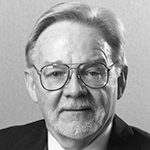 In 1966, J. Claude Bennett, MD, a native of Birmingham, joined the faculty as an Associate Professor of Medicine and Assistant Director of the Division. Dr. Bennett had a strong laboratory-based research background centered on components of the immune response within the purview of rheumatic diseases. While he was at Cal Tech, he published a seminal paper proposing a mechanism by which antibodies are formed through juxtaposition of gene segments. This article was reported on extensively, including a front-page story in the New York Times on November 29, 1965. Soon after joining the faculty, Dr. Bennett was designated a Markle Scholar, a highly prestigious and competitive honor. Dr. Bennett succeeded Dr. Holley as Director of the Division and its official name was changed to the Division of Clinical Immunology and Rheumatology to reflect shifting research and clinical interests. Under Dr. Bennett's leadership, the Division flourished, with significant increases in the number of faculty and research funding. Dr. Bennett was named the first holder of the Howard Holley Chair of Medicine, became the editor of the American Journal of Medicine, the Editor-in-Chief of Arthritis & Rheumatism, and a member of the American Board of Internal Medicine. In recognition of his visionary and administrative talents, he was asked to re-organize the Department of Microbiology as its Chairman. Several years later, Microbiology at UAB was rated the top Department in the country. In 1982, Dr. Bennett was appointed Chairman of the Department of Medicine and relinquished the Directorship of the Division, and Chairmanship of Microbiology. In 1993 he was given the John Phillips Memorial Award for Outstanding Work in Clinical Medicine by the American College of Physicians. He served as a President of the American College of Rheumatology and later became the fourth President of the University of Alabama at Birmingham, serving until 1996. After his tenure as President, Dr. Bennett became President and Chief Operating Officer at BioCryst Pharmaceuticals, Inc. Dr. Bennett and his wife Frances Caldwell live in Birmingham and remain active in the UAB community.
In 1966, J. Claude Bennett, MD, a native of Birmingham, joined the faculty as an Associate Professor of Medicine and Assistant Director of the Division. Dr. Bennett had a strong laboratory-based research background centered on components of the immune response within the purview of rheumatic diseases. While he was at Cal Tech, he published a seminal paper proposing a mechanism by which antibodies are formed through juxtaposition of gene segments. This article was reported on extensively, including a front-page story in the New York Times on November 29, 1965. Soon after joining the faculty, Dr. Bennett was designated a Markle Scholar, a highly prestigious and competitive honor. Dr. Bennett succeeded Dr. Holley as Director of the Division and its official name was changed to the Division of Clinical Immunology and Rheumatology to reflect shifting research and clinical interests. Under Dr. Bennett's leadership, the Division flourished, with significant increases in the number of faculty and research funding. Dr. Bennett was named the first holder of the Howard Holley Chair of Medicine, became the editor of the American Journal of Medicine, the Editor-in-Chief of Arthritis & Rheumatism, and a member of the American Board of Internal Medicine. In recognition of his visionary and administrative talents, he was asked to re-organize the Department of Microbiology as its Chairman. Several years later, Microbiology at UAB was rated the top Department in the country. In 1982, Dr. Bennett was appointed Chairman of the Department of Medicine and relinquished the Directorship of the Division, and Chairmanship of Microbiology. In 1993 he was given the John Phillips Memorial Award for Outstanding Work in Clinical Medicine by the American College of Physicians. He served as a President of the American College of Rheumatology and later became the fourth President of the University of Alabama at Birmingham, serving until 1996. After his tenure as President, Dr. Bennett became President and Chief Operating Officer at BioCryst Pharmaceuticals, Inc. Dr. Bennett and his wife Frances Caldwell live in Birmingham and remain active in the UAB community.
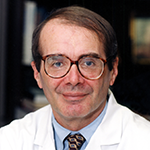 Dr. Bennett was succeeded as chief of the division and Howard Holley Chair of Medicine by Dr. William J. Koopman, whose background also included Harvard Medical School, the Massachusetts General Hospital, and the National Institutes of Health. He too was interested in rheumatoid factors and their role in initiating and maintaining the inflammation of rheumatoid arthritis. Dr. Koopman's background in laboratory-based research and his active participation in the clinic allowed him to rationalize the use of biological agents such as anti-CD4 antibody and TNF inhibitors in rheumatoid arthritis and to collaborate with various members within and outside the division in pivotal studies. Thus, Dr. Koopman was an important facilitator of translational research before it became a dominant paradigm in academic medicine. Dr. Koopman was an accomplished academician and became President of the American College of Rheumatology and Editor-in-Chief of Arthritis & Rheumatism, and Editor of the textbook Arthritis and Allied Conditions. In 1995, Dr. Koopman established a major research partnership with a Japanese pharmaceutical company, Sankyo. Like his predecessors as division directors, Dr. Koopman had a strong sense of collegiality, and it was this, as much as his excellence in education, research, and clinical medicine that led to his appointment as Chairman of the Department of Medicine upon Dr. Bennett's assumption of the Presidency of UAB. After 10 years as a highly successful Chief of Medicine, Dr. Koopman retired and lives with his wife
Dr. Bennett was succeeded as chief of the division and Howard Holley Chair of Medicine by Dr. William J. Koopman, whose background also included Harvard Medical School, the Massachusetts General Hospital, and the National Institutes of Health. He too was interested in rheumatoid factors and their role in initiating and maintaining the inflammation of rheumatoid arthritis. Dr. Koopman's background in laboratory-based research and his active participation in the clinic allowed him to rationalize the use of biological agents such as anti-CD4 antibody and TNF inhibitors in rheumatoid arthritis and to collaborate with various members within and outside the division in pivotal studies. Thus, Dr. Koopman was an important facilitator of translational research before it became a dominant paradigm in academic medicine. Dr. Koopman was an accomplished academician and became President of the American College of Rheumatology and Editor-in-Chief of Arthritis & Rheumatism, and Editor of the textbook Arthritis and Allied Conditions. In 1995, Dr. Koopman established a major research partnership with a Japanese pharmaceutical company, Sankyo. Like his predecessors as division directors, Dr. Koopman had a strong sense of collegiality, and it was this, as much as his excellence in education, research, and clinical medicine that led to his appointment as Chairman of the Department of Medicine upon Dr. Bennett's assumption of the Presidency of UAB. After 10 years as a highly successful Chief of Medicine, Dr. Koopman retired and lives with his wife
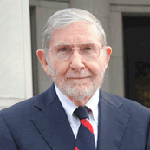 Dr. Gene V. Ball, a clinician-educator, was the interim director of the division for 18 months in 1995-96. His uniqueness lay in developing strong relationships with patients, which led ultimately to the establishment of three endowed chairs in the Department of Medicine, an endowment for the annual Lowe Conference of Rheumatic Diseases, and a large endowment for the university.
Dr. Gene V. Ball, a clinician-educator, was the interim director of the division for 18 months in 1995-96. His uniqueness lay in developing strong relationships with patients, which led ultimately to the establishment of three endowed chairs in the Department of Medicine, an endowment for the annual Lowe Conference of Rheumatic Diseases, and a large endowment for the university.
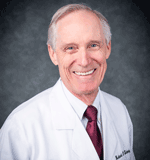 In 1996, Dr. Robert Kimberly became the fourth Division Director. He was recruited from the Hospital for Special Surgery in New York, where he had been a Professor of Medicine and was the first Division Director without prior association with UAB. Like two of his predecessors, Dr. Kimberly is a graduate of Harvard Medical School, with the additional distinction of having been a Rhodes Scholar. Assisted by associates he brought to UAB from his laboratory in New York, Dr. Kimberly continued his investigation of genetic susceptibility and pathogenesis of rheumatic diseases, particularly systemic lupus erythematosus. He currently serves as Howard Holley Professor of Medicine, Director of the Center for Clinical and Translational Science, and Senior Associate Dean for Clinical and Translational Research in the UAB School of Medicine.
In 1996, Dr. Robert Kimberly became the fourth Division Director. He was recruited from the Hospital for Special Surgery in New York, where he had been a Professor of Medicine and was the first Division Director without prior association with UAB. Like two of his predecessors, Dr. Kimberly is a graduate of Harvard Medical School, with the additional distinction of having been a Rhodes Scholar. Assisted by associates he brought to UAB from his laboratory in New York, Dr. Kimberly continued his investigation of genetic susceptibility and pathogenesis of rheumatic diseases, particularly systemic lupus erythematosus. He currently serves as Howard Holley Professor of Medicine, Director of the Center for Clinical and Translational Science, and Senior Associate Dean for Clinical and Translational Research in the UAB School of Medicine.
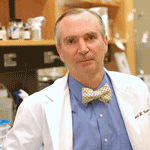 Dr. Kimberly's successor was Dr. Robert Carter, also a graduate of Harvard Medical School. Dr. Carter served as Division Director for from July 1, 2007, to June 30, 2008. Dr. Carter's research was aimed at unraveling the molecular regulation of B lymphocytes and their role in autoimmunity. Like previous directors, he was also interested in translational research, particularly on lupus. In 2008, Dr. Carter was named Deputy Director of the National Institute of Arthritis and Musculoskeletal and Skin Diseases and became Acting Director of NIAMS in December 2018.
Dr. Kimberly's successor was Dr. Robert Carter, also a graduate of Harvard Medical School. Dr. Carter served as Division Director for from July 1, 2007, to June 30, 2008. Dr. Carter's research was aimed at unraveling the molecular regulation of B lymphocytes and their role in autoimmunity. Like previous directors, he was also interested in translational research, particularly on lupus. In 2008, Dr. Carter was named Deputy Director of the National Institute of Arthritis and Musculoskeletal and Skin Diseases and became Acting Director of NIAMS in December 2018.
 Upon the departure of Dr. Carter, S. Louis Bridges, Jr., MD, PhD became Interim Director and in May, 2009 the Director of the Division of Clinical Immunology and Rheumatology. Dr. Bridges is the first graduate of the UAB Rheumatology fellowship program to be named Director of the Division, and was the inaugural holder of the Marguerite Jones Harbert-Gene V Ball, MD Chair. Following in the footsteps of many previous Division Directors such as Drs. Bennett and Koopman, his research is largely focused on rheumatoid arthritis, including B cells and autoantibodies, genetics, and biomarkers of severity and treatment response. In 2013, Dr. Bridges was appointed Director of the UAB Comprehensive Arthritis, Musculoskeletal, Bone, and Autoimmunity Center and was served Chair of the Council of Center Directors in 2018. During his tenure as Division Director, Dr. Bridges served as Co-Editor of Arthritis & Rheumatology and was Chair of the NIH Arthritis, Musculoskeletal, and Skin Study Section. He served as Chair of the American College of Rheumatology’s Committee on Research. In 2019, Dr. Bridges was appointed to a two-year term as President of the Rheumatology Research Foundation and a member of the Executive Committee of the American College of Rheumatology. Effective September 1, 2020, Dr. Bridges became the Physician-in-Chief and Chair of the Department of Medicine at the Hospital for Special Surgery and Director of the Division of Rheumatology at Weill Cornell Medical College in New York City.
Upon the departure of Dr. Carter, S. Louis Bridges, Jr., MD, PhD became Interim Director and in May, 2009 the Director of the Division of Clinical Immunology and Rheumatology. Dr. Bridges is the first graduate of the UAB Rheumatology fellowship program to be named Director of the Division, and was the inaugural holder of the Marguerite Jones Harbert-Gene V Ball, MD Chair. Following in the footsteps of many previous Division Directors such as Drs. Bennett and Koopman, his research is largely focused on rheumatoid arthritis, including B cells and autoantibodies, genetics, and biomarkers of severity and treatment response. In 2013, Dr. Bridges was appointed Director of the UAB Comprehensive Arthritis, Musculoskeletal, Bone, and Autoimmunity Center and was served Chair of the Council of Center Directors in 2018. During his tenure as Division Director, Dr. Bridges served as Co-Editor of Arthritis & Rheumatology and was Chair of the NIH Arthritis, Musculoskeletal, and Skin Study Section. He served as Chair of the American College of Rheumatology’s Committee on Research. In 2019, Dr. Bridges was appointed to a two-year term as President of the Rheumatology Research Foundation and a member of the Executive Committee of the American College of Rheumatology. Effective September 1, 2020, Dr. Bridges became the Physician-in-Chief and Chair of the Department of Medicine at the Hospital for Special Surgery and Director of the Division of Rheumatology at Weill Cornell Medical College in New York City.
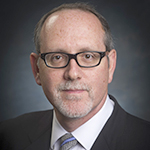 Beginning in July of 2020, Kenneth G. Saag, M.D., M.Sc. became the 8th Director of the Division of Clinical Immunology and Rheumatology. Trained as an engineer at the University of Michigan, Dr. Saag received his M.D. from Northwestern University and an M.Sc. in Epidemiology from the University of Iowa. He served as an Assistant Professor at the University of Iowa before joining UAB in 1998 under the leadership of Drs. William Koopman as Chair and Robert Kimberly as Division Director. Since 2009, he has held the Jane Knight Lowe Endowed Chair in the Division. Dr. Saag’s research is focused on testing drugs and methods to improve outcomes in Gout and Osteoporosis. He founded the AHRQ funded Center for Education and Research on Therapeutics of Musculoskeletal Disorders, served as Director for the Center for Outcomes, Effectiveness Research and Education from 2009 – 2020, currently leads a NIAMS funded Center of Research Translation in Gout and Hyperuricemia, and serves as Vice Chairman for Outcomes Research in the Department of Medicine. As a leader of multiple training and early career development awards, and as a mentor for many trainees and faculty, he is a past recipient of the ACR Research Foundation Excellence in Investigative Mentoring Award. He was the first rheumatologist to serve as President of the National Osteoporosis Board of Trustees and, following in the footsteps of two of his Division Director predecessors, Dr. Saag became president of the American College of Rheumatology in 2021.
Beginning in July of 2020, Kenneth G. Saag, M.D., M.Sc. became the 8th Director of the Division of Clinical Immunology and Rheumatology. Trained as an engineer at the University of Michigan, Dr. Saag received his M.D. from Northwestern University and an M.Sc. in Epidemiology from the University of Iowa. He served as an Assistant Professor at the University of Iowa before joining UAB in 1998 under the leadership of Drs. William Koopman as Chair and Robert Kimberly as Division Director. Since 2009, he has held the Jane Knight Lowe Endowed Chair in the Division. Dr. Saag’s research is focused on testing drugs and methods to improve outcomes in Gout and Osteoporosis. He founded the AHRQ funded Center for Education and Research on Therapeutics of Musculoskeletal Disorders, served as Director for the Center for Outcomes, Effectiveness Research and Education from 2009 – 2020, currently leads a NIAMS funded Center of Research Translation in Gout and Hyperuricemia, and serves as Vice Chairman for Outcomes Research in the Department of Medicine. As a leader of multiple training and early career development awards, and as a mentor for many trainees and faculty, he is a past recipient of the ACR Research Foundation Excellence in Investigative Mentoring Award. He was the first rheumatologist to serve as President of the National Osteoporosis Board of Trustees and, following in the footsteps of two of his Division Director predecessors, Dr. Saag became president of the American College of Rheumatology in 2021.